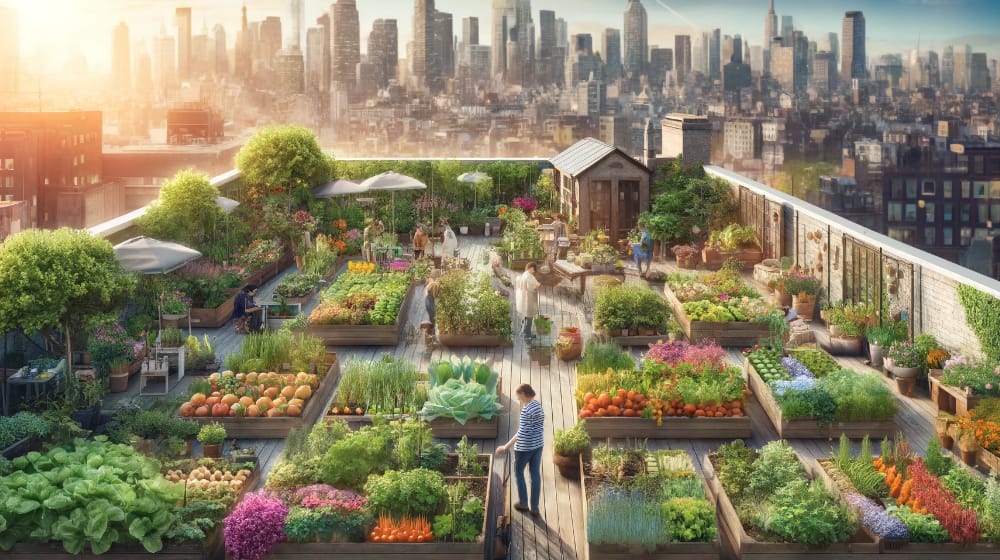- Sprout & Spade
- Posts
- 🌱 Spring Surprises in Your Garden!
🌱 Spring Surprises in Your Garden!
🌱 Spring Surprises in Your Garden!

🌼 This Week's Theme: Growing Forward!
Welcome to your weekly dose of green goodness! This week, we’re focusing on how to get the most out of the early spring season and prepare your garden for a bountiful year.
📰 In the News
Expanding Urban Gardens: Urban gardening is on the rise, with more city dwellers turning to container gardening and rooftop gardens to grow their own food. These small-space solutions are perfect for anyone looking to add greenery to their urban environment.
Eco-Friendly Practices: Sustainable gardening practices are becoming mainstream. The latest trends include using organic fertilizers, planting native species, and reducing chemical use to protect local ecosystems.
🗓️ Advanced Tips: Timely Garden Tasks
Northern USA:
Seed Starting: Start your seeds indoors to get a head start on the growing season. Use biodegradable pots that can be planted directly into the ground to minimize transplant shock.
Soil Amendment: Test your soil and add necessary amendments like compost or organic fertilizers. This will provide your plants with the nutrients they need for strong growth.
Southern USA:
Pruning and Maintenance: Trim back any dead or overgrown branches on your shrubs and trees. This encourages new growth and helps maintain the shape and health of your plants.
Early Planting: With warmer weather, you can start planting heat-loving crops like tomatoes, peppers, and eggplants. Use row covers to protect young plants from any unexpected cool nights.
🔧 Garden Gadget of the Week
LED Grow Lights: Perfect for starting seeds indoors or giving your houseplants a boost, LED grow lights provide the full spectrum of light needed for healthy growth. They are energy-efficient and can be used in any indoor space.
🏙️ Urban Gardening: Container Gardening Essentials
Container gardening is a versatile and accessible way to grow plants in urban settings. Here are some essentials to get you started:
Choosing Containers: Select pots with good drainage and enough space for your plants to grow. Materials like terracotta, plastic, and fabric pots each have their benefits. Fabric pots, for example, provide excellent root aeration.
Soil Mix: Use a high-quality potting mix designed for containers. These mixes are lighter than garden soil and often contain added nutrients to support plant growth.
Watering: Containers can dry out quickly, especially in sunny spots. Check the soil moisture daily and water thoroughly when the top inch of soil feels dry. Self-watering containers are a great option to ensure consistent moisture levels.
🌿 Sustainability Corner
Organic Mulch: Use organic mulch like straw, leaves, or grass clippings around your plants. Mulching helps retain soil moisture, suppress weeds, and improve soil health as it breaks down.
Native Plants: Planting native species is a great way to support local wildlife and reduce water usage. Native plants are adapted to your local climate and soil, making them more resilient and easier to care for.
🌱 Digging Deep: Composting Basics
Composting is an excellent way to recycle organic waste and create nutrient-rich soil for your garden. Here’s how to get started:
Choose a Compost Bin: There are many types of compost bins, from simple wire enclosures to rotating bins that make turning compost easier. Choose one that fits your space and needs.
Balance Your Greens and Browns: Successful composting requires a balance of green materials (like vegetable scraps and grass clippings) and brown materials (like leaves and straw). Aim for a ratio of about 3 parts brown to 1 part green.
Maintain Moisture and Aeration: Keep your compost pile moist but not soggy. Turn the pile regularly to introduce air, which helps break down the materials and speeds up the composting process.
Use Finished Compost: Once your compost is dark and crumbly, it’s ready to use. Add it to your garden beds, mix it into potting soil, or use it as a top dressing for your plants.
🤓 Fun Facts
Did you know that broccoli is a man-made vegetable? It was bred out of wild cabbage during the Roman Empire and has been a staple in gardens ever since!